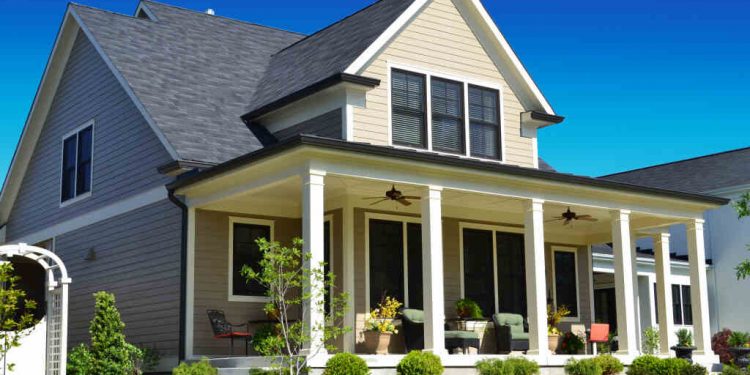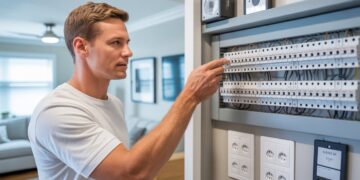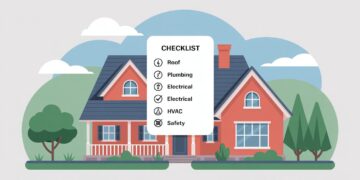Do you know moving is classified as one of the most stressful experiences in life? So, if you’ve been wondering why you’re restless while in the process of buying your first home and moving there, it makes absolute sense. Of course, a first home comes with a lot of excitement too. Use our list of common mistakes to sidestep a few issues, make the process more exciting and feel less apprehensive.
Underestimating the Importance of Space
You may find a house that makes you emotional the first time you stop at the kerb. But there are many factors that determine whether you’ll really enjoy living on that property. Space is one of the important factors! Luckily, with today’s innovative products such as outdoor blinds Melbourne homeowners often employ, you can easily create more space to use, if your dream home lacks in this category.
However, while still deciding on buying a particular house, be honest with yourself when answering these questions:
- Is there enough storage space?
- Can your family each have their own room or zone?
- Do the available spaces fit your lifestyle? If you love having guests over, a good-sized lounge or patio is essential.
- Will the rooms feel comfortable or cluttered after you positioned the furniture you need to make them functional?
The goal is too determine if it will take too many, costly, renovations to make the house appropriate for your use.
Certain upgrades like creating an open-plan kitchen in an older house or adding motorised outdoor blinds around a patio are worth it. Such changes add immense property value. However, answers to questions like the ones above will show you whether a particular home is a smart or emotional buy.
Believing the Seller’s Every Word
Chances are you’ll meet the owner at some stage and you may want to ask them questions about the property. Of course, they can give you valuable insight, whether about the neighbourhood or the house itself. But take their feedback with a pinch of salt.
Even that friendly old lady that reminds you of your grandmother will do anything to get the place sold. Remember, they put it up for sale and want to get on with their lives. So, try to verify their feedback on valuable topics:
- Ask other friends that live in the area about crime or traffic noise.
- Discuss with the agent whether it’s an area where property prices tend to rise over time, so you know if it’s a smart long-term investment.
- Take your time checking for damp and mould in cupboards or in the roof.
Buying Before You Know Exact Room Dimensions
Closely associated with the matter of space, it pays off to request floor plans or at least the dimensions of the rooms. You can measure them yourself if you have access to the property.
Why go to this trouble?
Property agents’ photographs can be deceptive and make rooms look larger. Even if you visit in person, it can be so overwhelming to find a place you actually like, that you don’t notice how small certain rooms are. Many a buyer have been shocked at how little space there really is once they get the keys and view the rooms without the previous owner’s furniture inside.
Rather ask for the dimensions and compare it to your current space. If it’s much smaller, will you find it comfortable to live in?
Clinging to Existing Furniture and Decor
Even first-time homeowners usually own at least a few pieces of furniture already. But don’t be too sentimental about them. To create inviting spaces, it’s essential to have cohesion between a room’s look, furniture and décor. For example, a bulky antique table may be stunning, but if it blocks light flowing in from huge sliding doors, the room won’t come to its full potential.
Lack of Insight Regarding the Financial Side of Home Buying
Buyers are often blindsided and have expenses they never budgeted for. There are experts that can guide you through the process, but you need to initiate conversations, because rarely will estate agents or lawyers help you of their own accord. They just want the sale to go through as quick as possible!
Some topics to research, discuss and include in your budget:
- Budget for hidden costs many buyers forget about in the excitement of buying a home. For example, ask about attorney fees.
- You need cashflow for the move, home insurance and maintenance. Also, the new property’s utility costs may differ dramatically from your current expenses.
- Can you really afford it? Experts suggest you shouldn’t spend more than 30% of your income on housing. If you already have debt, it should be even less.
Rather take your time to budget properly, without the thought of losing out on a great house forcing you into a deal you can’t afford. As mentioned, emotional buying can be detrimental.
Be a Smarter First Time Buyer
Of course, no property is perfect, but if a new home will require extensive changes, costs add up and you can ruin your budget trying to transform it. Be a smart, informed potential buyer when viewing homes, and don’t sign on that dotted line unless you’re certain it’s both an emotional and financial win for your household.
Also Read: How The Fairfield Inn By Marriott Helps Me Feel Like Home

















